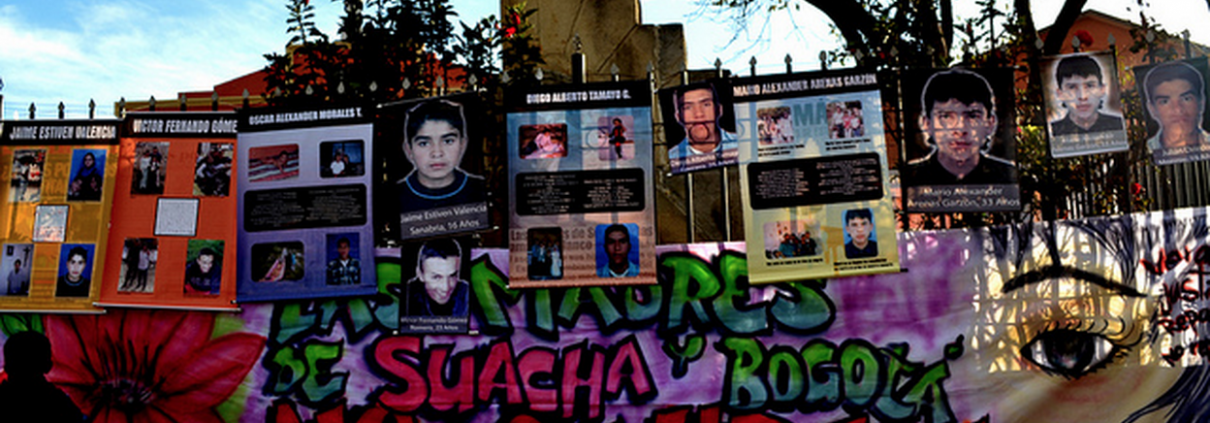False Positives
By Kurt Klein MPP ’16
The data from our research are interviews. One of my many tasks within our project is to translate and transcribe the interviews that are in Spanish into English. Although they contain valuable information, most interviews only slightly pique my curiosity. Usually, they are discussions of how the projects we are studying are developed and implemented. However, today was different. The interviewee was an expert from Colombia who described the historical and political context under which some of his previous work had occurred. He spoke of the ongoing armed conflict in Colombia. His stories of the “false positives” left me both heartbroken and livid.
In 2008, a scandal broke in regards to the practices of the Colombian military in their conflict against Marxist guerrilla groups. Notably, soldiers were given promotions, pay raises and other benefits according to the amount of kills they had committed. Soldiers eagerly sought out to eradicate terrorists and politicians loved to stoke the perception that they produced results by pointing out kill totals. However, this practice eventually led to one the most heinous cases of perverse incentives imaginable.
The military began kidnapping civilians, killing them and then dressing them up as guerrillas in order to boost body counts. A common practice involved recruiting people from the country’s poorer areas under the guise that they were hired to do lucrative work in a remote location. They would then be transported to areas with high guerilla activity and subsequently murdered by the military. Often, these men were unemployed, destitute or had intellectual disabilities. Estimations from human rights organizations claim that there were at least 3,000 of these false positives. Making matters worse is that after seven years, only a few hundred of these cases have been investigated and brought to trial.
Social cohesion is a difficult concept to grasp. Yet, it is conspicuous when it is absent. Societies that lack it are susceptible to falling into civil wars. Only in its void do public institutions encourage the execution of compatriots. Without it, segments of the population, such as the poor, desperate and defenseless, are prone to human rights abuses. Lastly, systems of justice that are not competent enough to provide justice for victims demonstrate a deficit of social cohesion.
I’ve learned a lot about social cohesion in my time here. However, I still don’t think I can tell anyone exactly what social cohesion is or what societies that have it look like. But, I can easily point out where it is missing.







